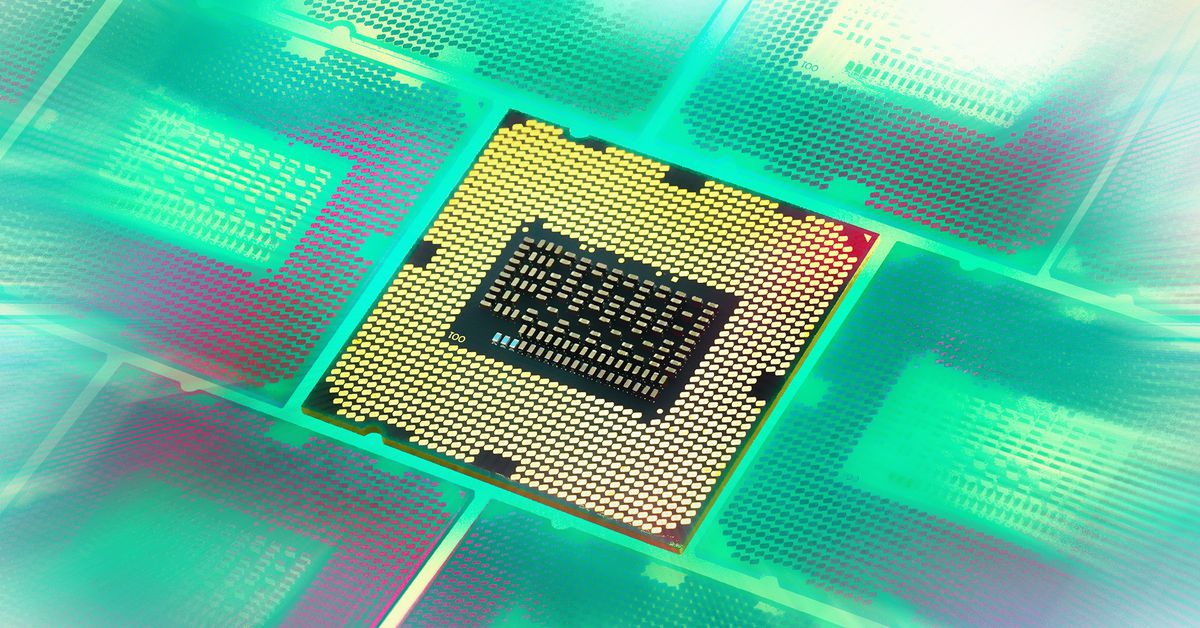Nvidia’s Bold Retort: Understanding Trump’s Praise Amid Biden’s AI Chip Controversy
In the ever-evolving world of artificial intelligence and semiconductor technology, few companies have made as significant an impact as Nvidia. Recently, the tech giant has found itself at the center of a political storm, particularly in response to President Biden’s newly imposed restrictions on AI chips. However, it’s Nvidia’s unexpected praise for former President Trump that has captured widespread attention. This article explores the implications of Nvidia’s stance amidst the complex landscape of AI regulation and the political ramifications that follow.
Nvidia’s Position on AI Chip Regulations
Nvidia has long been a leader in the AI semiconductor space, providing powerful GPUs that drive advancements in machine learning and deep learning. As AI technologies continue to proliferate across various sectors, the demand for high-performance chips has surged. However, with this growth comes the responsibility to ensure that such technologies are developed and deployed ethically and safely.
President Biden’s administration has taken a proactive approach to regulate the AI chip market, citing national security concerns and the potential for misuse of AI technologies. The new restrictions aim to limit the export of advanced chips to certain countries, particularly those with competing interests in AI development. While many in the tech community recognize the need for some form of regulation, the specifics of these restrictions have sparked debate and concern.
The Controversial Response from Nvidia
In a recent statement, Nvidia addressed these regulations with a bold retort that not only highlighted the company’s commitment to responsible AI development but also included unexpected praise for former President Trump. This acknowledgment has raised eyebrows and fueled discussions about the intersection of business, technology, and politics.
Many analysts have interpreted Nvidia’s response as a strategic move to navigate the complex regulatory environment while positioning itself favorably with different political factions. By commending Trump, Nvidia appears to be courting a broader audience, potentially mitigating backlash from conservative stakeholders who may view the Biden administration’s restrictions as overly stringent.
Implications of Nvidia’s Corporate Stance
Nvidia’s decision to publicly praise Trump carries significant implications for its business operations and reputation. Here are some key aspects to consider:
- Market Dynamics: By appealing to a wider political spectrum, Nvidia may be aiming to ensure continued support from various government entities, which is crucial for a company reliant on government contracts and international markets.
- Investor Confidence: Investors often seek stability and predictability, and Nvidia’s alignment with diverse political narratives could strengthen confidence in its long-term strategy.
- Public Perception: The tech industry is notoriously polarized, and Nvidia’s stance may alienate some consumers while attracting others. This balancing act is essential for maintaining market share.
Analyzing the Broader Landscape of AI Regulation
As AI technology permeates every facet of life, the regulatory framework surrounding it is becoming increasingly complex. The Biden administration’s approach signifies a shift towards more stringent oversight, focusing on ethical considerations and national security. However, this has raised questions about innovation and competitiveness in the global market.
The technology sector is at a crossroads, where companies like Nvidia must navigate the delicate balance between compliance and innovation. The potential for over-regulation could stifle growth and push tech talent and investment to more permissive environments. As countries race to develop AI capabilities, the need for a coherent regulatory strategy that promotes innovation while safeguarding against misuse is more critical than ever.
What This Means for the Future of AI Development
The interplay between political dynamics and corporate strategy in the tech sector will have lasting implications for the future of AI development. Nvidia’s bold retort is emblematic of a larger trend where companies must become adept at managing not only technological advancements but also the political landscape that shapes their operational environment.
The Role of Corporate Responsibility
As a leader in AI technology, Nvidia carries the responsibility of setting industry standards for ethical AI development. This includes considerations around transparency, accountability, and the societal impact of AI technologies. By engaging with political discourse, Nvidia can advocate for policies that promote responsible innovation while addressing the fears and concerns of the public.
Nvidia’s bold retort to the Biden administration’s AI chip restrictions, coupled with its unexpected praise for Trump, underscores the intricate relationship between technology, politics, and public perception. As the company navigates this challenging landscape, it will be interesting to observe how these dynamics unfold and shape the future of AI regulation.
Ultimately, Nvidia’s approach may serve as a blueprint for other tech companies grappling with similar challenges. By balancing corporate interests with ethical considerations and political realities, the tech industry can help pave the way for a future where AI technologies are developed responsibly and sustainably.
As we look ahead, the need for collaboration among stakeholders—governments, corporations, and the public—will be vital in ensuring that AI technology serves as a force for good, driving progress while safeguarding against potential risks.
See more Future Tech Daily

